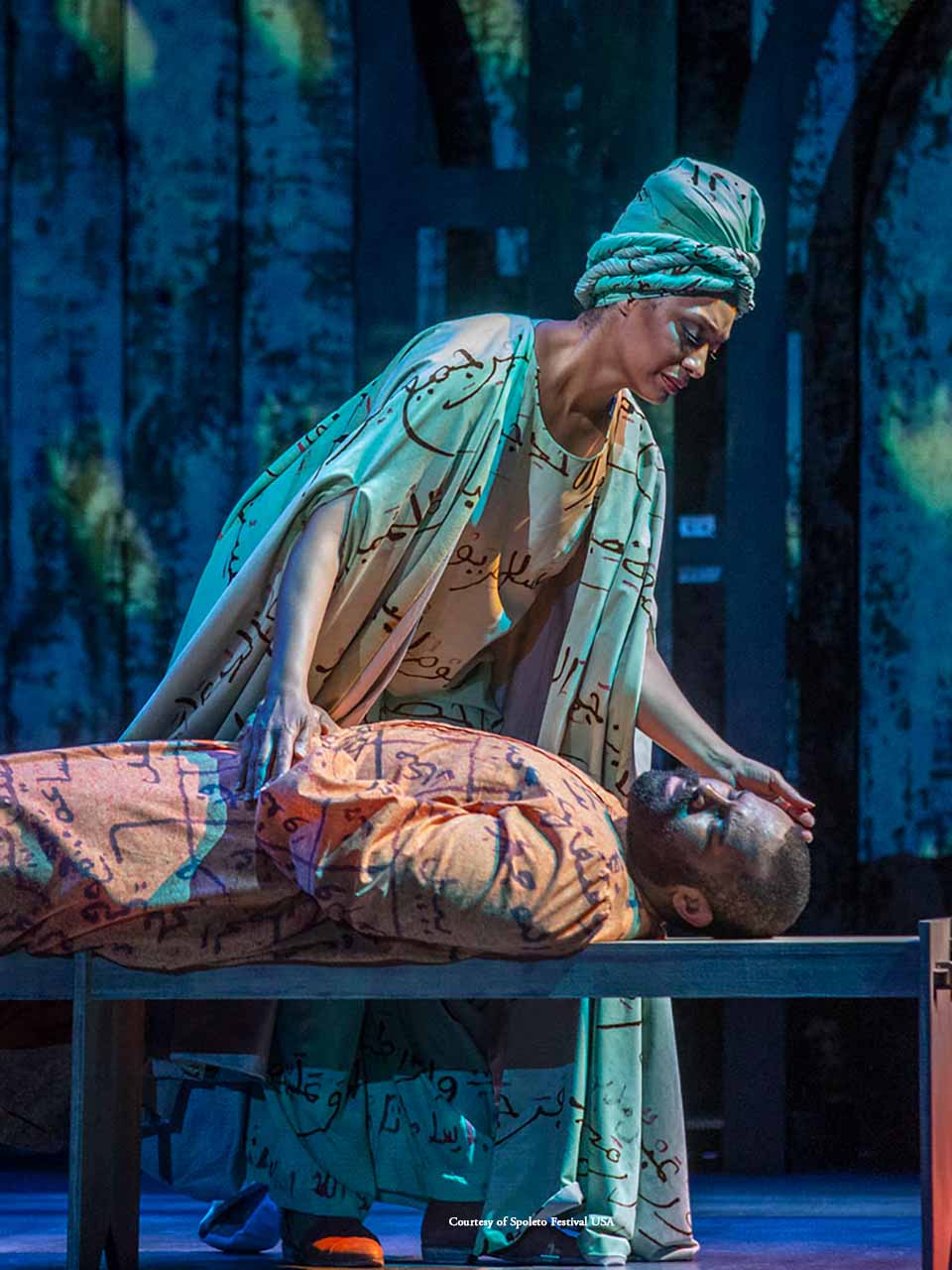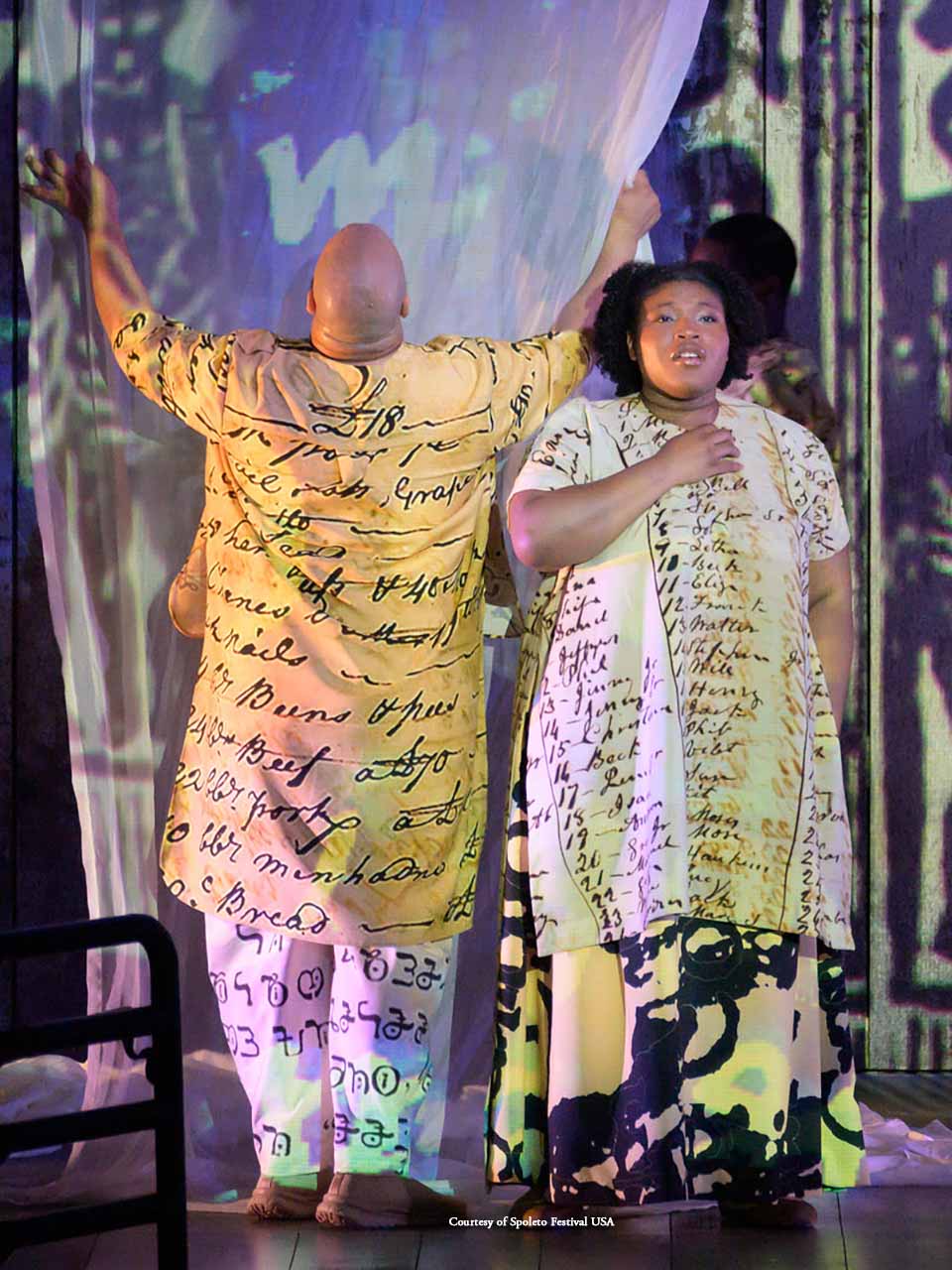In the News


“As someone who works in film, I am very much concerned about the dramatic contour of a scene and of an entire story as it unfolds. It’s not an individual musical moment, but a series of individual musical moments in a certain order that tell a story, and that’s crucial to what I think makes a great opera” – Michael Abels, The Boston Musical Intelligencer
“‘Have you ever heard of Omar ibn Said?’ And I was like, ‘Who?’ Then they told me the story, and I couldn’t believe it.” – Rhiannon Giddens, WGBH
“Here we have this text from Omar, a man who was literate before he became enslaved…It’s holy.” – Kaneza Schaal, South Carolina Public Radio
“…Omar is the most important new work to emerge from Spoleto, at least since the Menotti era. The story of Omar is important for the truth it holds.” – Arts ATL
“Omar’s writings are fascinating for historians to analyse because he is doing what he needs to do in a world that is not friendly.” – Michael Abels, Middle East Eye
“When I first started my music career, I didn’t think I was ever going to be a creator…So the idea of being an opera composer was daunting…” – Rhiannon Giddens, The Post and Courier
“Of course, I thought I was being punked. But I thought it was a really good punk, so I said, ‘Send me the script.’” – Michael Abels, TODAY Show
“[My] teacher, who was a singer himself, explained, ‘You know, opera was the movies before there were movies.’ And my young ears perked up. And he said, ‘Why are the voices so big? It’s because there’s no amplification! Their voices are trained. It’s a muscle. They’re athletes!’” – Michael Abels, Los Angeles Times
“A Slave Memoir Becomes and Opera” – Rosalind Early, HUMANITIES (NEH)
